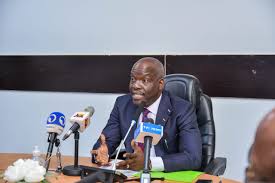Business
Nigeria May Face 3.1bcf/d Gas Supply Shortfall in the Next Six Years, NUPRC Warns

The Nigerian Upstream Petroleum Regulatory Commission (NUPRC) has warned that Nigeria could experience a 3.1 billion cubic feet per day gas supply shortfall over the next six years due to industry challenges. Learn more about the factors contributing to this potential crisis.
Nigeria could experience a gas supply deficit of 3.1 billion cubic feet per day (bcf/d) within the next six years unless prompt actions are taken to upgrade gas infrastructure and boost investments in renewable energy sources.
Stakeholders at the NAEC Energy Conference 2024 in Lagos, held on Thursday, projected that $20 billion in annual investments would be needed to address the country’s infrastructure deficit challenges.
At the event, Gbenga Komolafe, the Chief Executive Officer of the Nigerian Upstream Petroleum Regulatory Commission (NUPRC), stated that due to an improvement in domestic supply obligations, growth in gas demand is currently surpassing supply. This increase is primarily driven by rising domestic demand.
Komolafe, through his representative Paul Osu, the Director of the Lagos Regional Office, stated that gas demand is projected to increase at a compound annual growth rate of 16.6% annually. In Nigeria’s ‘Base Case Demand and Supply’ scenario, this could lead to an impending gas supply crisis with a potential shortfall of 3.1 billion cubic feet per day by 2030.
Komolafe indicated that while natural gas production is expected to rise from 8.0 billion cubic feet per day (bcfd) in 2020 to 12.2 bcfd by 2030, thanks to significant initiatives like NLNG Train 7 & Train 8, the Nigeria/Morocco pipeline, and the Ajaokuta-Kaduna-Kano (AKK) Natural Gas Pipeline Project among others in the ‘high case supply’ scenario, this increase will still fall short of meeting the projected ‘high case demand’ scenario of 22.2 bcfd for that year.
He stated, “Within the next ten years, we might see a significant shift in demand patterns, particularly if issues within the power sector are addressed. This highlights opportunities for gas development in Nigeria’s upstream industry and emphasizes the importance of integrating renewables alongside hydrocarbon advancements.”
Highlighting the NUPRC’s commitment to fostering a favorable operating environment, he encouraged investors to take advantage of the sustainability mandates in the Petroleum Industry Act (2021) and benefit from generous fiscal incentives.
Similarly, the Chief Executive Officer of the Nigeria Midstream and Downstream Petroleum Regulatory Authority (NMDPRA), Farouq Ahmed—represented by Director of Public Affairs George Ene-Ita—emphasized that energy security is essential for Nigeria’s economic growth.
READ ALSO: NUPRC rejects claims made by the internal union
He stated that even though Nigeria faces significant deficits in gas utilization, the country continues to flare approximately 2.5 billion cubic feet of gas each day.
Ahmed stated, “This squandered resource has the potential to produce sufficient electricity to meet our energy requirements. The Decade of Gas initiative aims to eliminate this waste, with a goal by 2030 of significantly enhancing our energy mix by contributing up to 5,000 Mega Watts (MW) to the national grid and decreasing our dependence on imported fuels.”
He mentioned, “While investing in gas infrastructure, it’s essential to diversify our energy sources and minimize reliance on any single fuel.”
He criticized the situation in which there are fewer than 3,000 LPG refilling plants and under 50 CNG compression stations for a nation of 200 million people.
Ahmed emphasized the importance of building a strong gas sector to meet domestic energy demands and establish the nation as a dependable energy supplier for neighboring countries. This approach aims to boost regional energy security and lessen reliance on oil.
He assured that the NMDPRA is dedicated to promoting transparency and creating an environment conducive to fairness and investment. “By implementing the PIA and regulations, we are establishing a consistent framework for investors, guaranteeing fair pricing, and fostering competition,” he stated.
Gabriel Ogbechie, the Chairman of the conference and Group Managing Director of Rainoil Limited, stated that our country is fortunate to have abundant natural gas reserves but currently faces a pivotal moment between opportunities and challenges. He emphasized that “the decisions we make today about the role of gas in our energy landscape will determine our nation’s economic development and environmental future.”
He referenced the NEITI report, which states that Nigeria needs around $20 billion annually to address its gas infrastructure deficit, including pipelines and processing plants.
He stated that the recent elimination of the petrol subsidy has heightened the urgency to expand gas alternatives, providing clean and affordable energy solutions for national benefit, ensuring energy security, and fostering a resilient energy system.
He noted that with the government’s goal to boost power generation through gas-fired plants, significant investment in gas infrastructure is essential, along with addressing challenges such as pipeline vandalism.
“We must keep attracting and providing investment, particularly in green financing, to advance our gas infrastructure development.”
He emphasized the importance of reinforcing policy frameworks that facilitate the expansion of CNG and LPG initiatives for transportation and domestic use.
